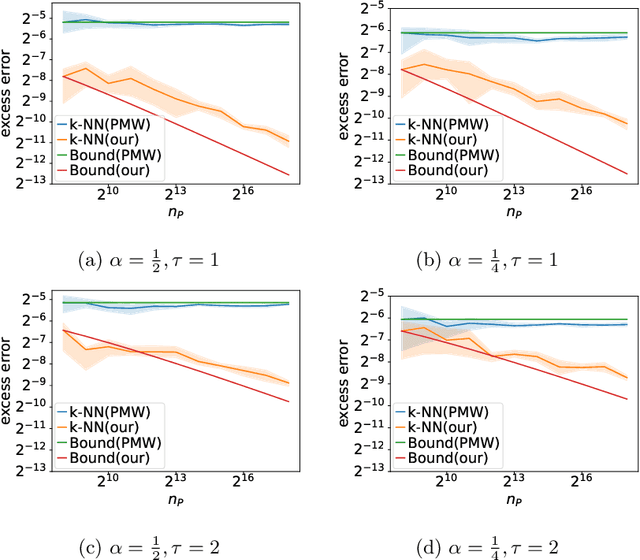Harnessing the Power of Vicinity-Informed Analysis for Classification under Covariate Shift
Paper and Code
May 27, 2024
Transfer learning enhances prediction accuracy on a target distribution by leveraging data from a source distribution, demonstrating significant benefits in various applications. This paper introduces a novel dissimilarity measure that utilizes vicinity information, i.e., the local structure of data points, to analyze the excess error in classification under covariate shift, a transfer learning setting where marginal feature distributions differ but conditional label distributions remain the same. We characterize the excess error using the proposed measure and demonstrate faster or competitive convergence rates compared to previous techniques. Notably, our approach is effective in situations where the non-absolute continuousness assumption, which often appears in real-world applications, holds. Our theoretical analysis bridges the gap between current theoretical findings and empirical observations in transfer learning, particularly in scenarios with significant differences between source and target distributions.
 Add to Chrome
Add to Chrome Add to Firefox
Add to Firefox Add to Edge
Add to Edge